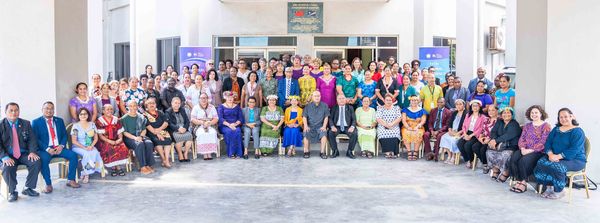Tuvalu Prime Minister and Minister of Gender Equity and Women Empowerment, Feleti Teo has called on Pacific men call to actively engage in addressing the challenges faced by women and girls in the region.
Speaking at the 8th Pacific Women Ministers meeting in Majuro, Marshall Islands, Teo emphasised the importance of men understanding and appreciating the concerns of women and girls in Moana Pasifika, saying that,” the root cause (and possibly solution) of the issues discussed this week lies in the lack of appreciation by the male population.”
Highlighting the disproportionate impact of climate change on women’s livelihoods, health, and caregiving responsibilities, Teo urged Pacific leaders to prioritise gender considerations in climate adaptation strategies.
He also acknowledged the need for improved data collection and analysis of gender-specific climate impacts in Tuvalu, promising to address these shortcomings.
“When we speak of climate justice, we are not just addressing environmental concerns,” Teo stated. “We are advocating for fair, inclusive, and sustainable development for us and every living being.”
He also stressed the importance of fostering women’s participation in climate diplomacy and ensuring gender equality in climate negotiations.
The lone prime minister attending the event also reiterated the need for climate justice to be practiced at home and within communities, “We cannot be resilient without all people, collectively and individually, being safe and well.”
“The time for action is now, and the responsibility is ours,” he said. “Let us lead with vision, compassion, and unwavering resolve.”
The ministers meeting follows the 15th Triennial Conference of Pacific Women, which focused on three key themes- women’s health, gender-based violence and gender responsive climate justice.
At the end of a two-day meeting, participants called for transformative action on climate change, highlighting the need for a comprehensive approach that addresses gendered dimensions of the crisis.
This included mitigation, adaptation, loss and damage, gender-responsive finance, women’s leadership, and data-driven policy.
Additionally, the conference emphasised the importance of education and empowerment, particularly for girls, to build resilience and foster leadership in climate action.














